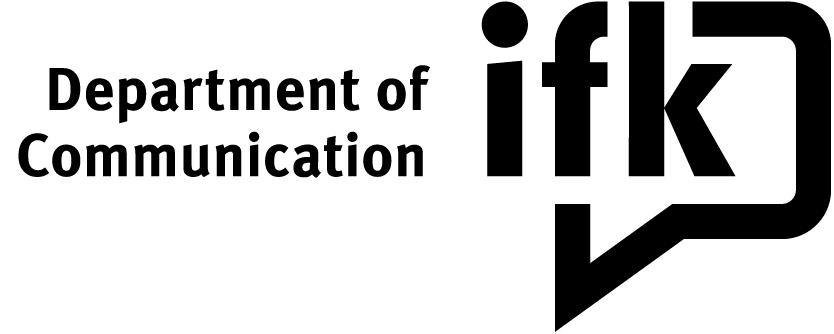Group of "Strategic Communication II"

Team of Strategic Communication II
The team of Strategic Communication II, headed by Prof. Dr. Helena Stehle, focuses on the intentional and non-intentional communication in, by, and between organizations, as well as on the perception and effects of such communication. The following areas are explored both theoretically and empirically:
Strategic communication as an organizational function
The team is interested in how organizations communicate goal-oriented and strategically with external and internal stakeholders as well as with each other, and in how this communication can be characterized (e.g., regarding structures, processes, motives, guidelines, as well as regarding planning, implementation, and evaluation as communication management). Organizations of different types and systems are considered. For example, past and current work deals with internal communication as well as environmental communication.
Perception and effects of organizational communication
How are organizations and their (non-)intentional communication perceived and reflected in their networks and relationships as well as in the public sphere? In exploring this question, the team pays particular attention to the comparison of organizational and public views as well as to consequences of deviations. For example, past and current work deals with the subjective perception of dialog communication, discrepancies in expectations and their consequences in internal communication, and the attribution or withdrawal of legitimacy and credibility.
Contexts and parameters of organizational communication
Which conditions and parameters affect the (non-)intentional communication of organizations and their perception in a modern, digital society? Organizational communication is analyzed in the context of socio-political, social, economic and technical developments. For example, past and current work deals with digital (in)visibility as well as with change communication at the interface of communication studies and organizational research.

